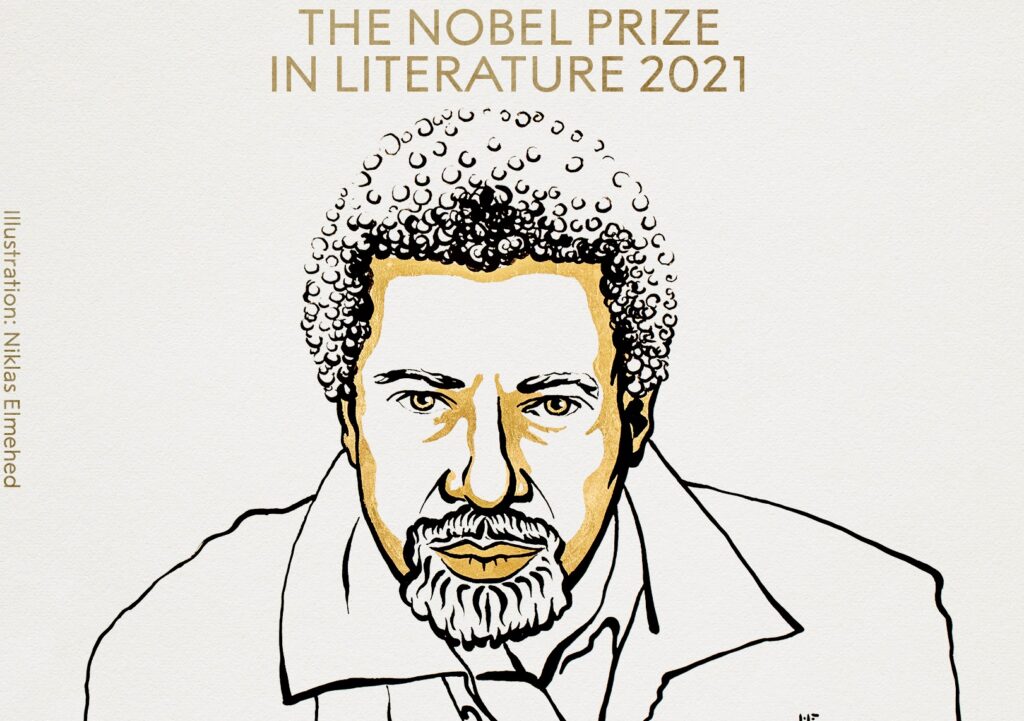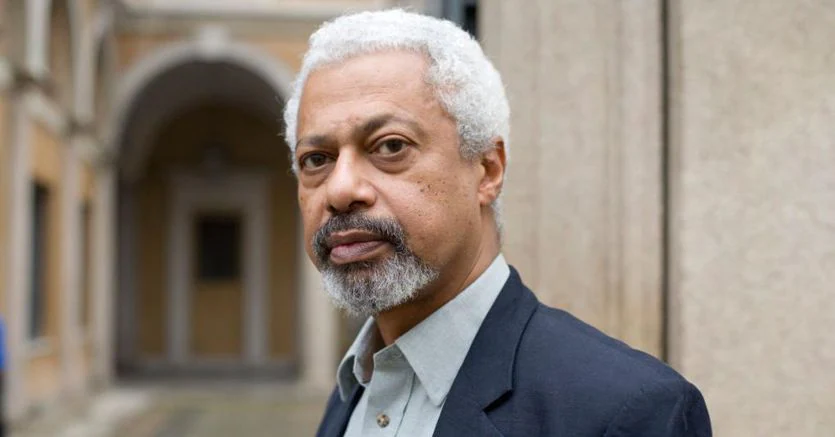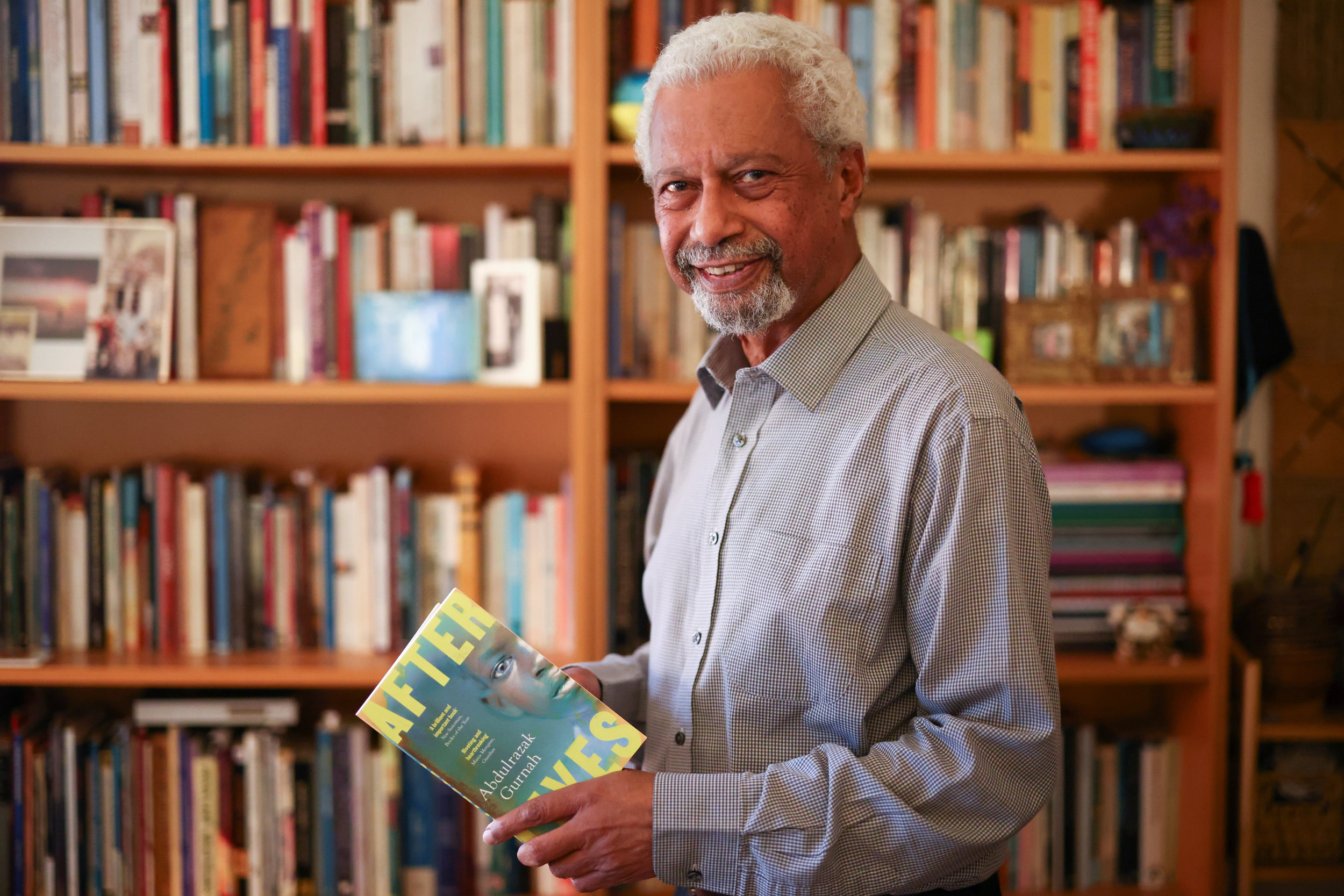By Panagiota Katsaveli,
Each moment, the world is enriched with new artistic talent and different pieces of art are released for the public to enjoy. One important way to not only celebrate and recognize the talent that some lucky individuals possess, but also to make artists more known to the general public is the incredible variety of annual awards. However, I think we can all agree on one thing: the Nobel prize for Literature could be described as the most important honor a writer can be awarded. This year, the prize was given to Abdulrazak Gurnah, so the least we, as an audience, can do is take a good look into this talented person’s career.
Most people have probably never heard of Abdulrazak Gurnah, so let’s see who the talented individual that listens to this name is. Abdulrazak Gurnah was born on December 20th, 1948, and is a novel writer based in the United Kingdom, with Tanzanian roots and Arab heritage. Specifically, he was born in the Sultanate of Zanzibar, but was forced to relocate to the United Kingdom in the 1960s as a refugee, because of the Zanzibar Revolution. He completed his studies in Christ Church College, Canterbury, as well as the University of Kent, in which he earned his Ph.D. on Criteria in the Criticism of West African Fiction. Besides being a magnificent writer, he taught at the University of Kent till his retirement in 2017, and now holds the position of Emeritus Professor of English and Postcolonial Literatures at the University. Moreover, from 1980 to 1983, he was a lecturer at Bayero University Kano in Nigeria. His latest novels are Desertion (2005), which was shortlisted for a 2006 Commonwealth Writers Prize, The Last Gift (2011), Gravel Heart (2017), and Afterlives (2020).

Gurnah’s first language is Swahili, but he adopted English as his literary language, with his writing often being flooded with traces of Swahili, Arabic, and German. Persian and Arabic poetry constitute his inspirations as well as the Quran. Occasionally, as he admitted, he had to fight back against publishers who intended to italicize Swahili and Arabic references and phrases in his books or replace them with more Western ones. “There’s a way in which British publishing, and perhaps American publishing as well, always wants to make the alien seem alien”, Gurnah said. “They want you to italicize it or even put a glossary. And I think no, no, no, no”. Gurnah is determined to help the importance of these, often neglected from the publishing industry, communities shine bright; he wants to insert more Eastern elements into the Western markets, but he wants to do it under his terms!
Abdulrazak Gurnah is a writer that has produced many incredible works, including short stories, essays, and 10 novels. He has dedicated his writing career to examining the variety of ways that human beings can find themselves in exile: from their homes, families, communities and, perhaps most importantly, from themselves. In every one of his books, he guides us through seismic historic moments and devastating societal ruptures, and explores the intricacy of human relationships of every kind, like friendships or families. In each of his novels, he focuses on the people whose stories might not have made it into the archives or who lack the evidence that would make them memorable to the outside world. He understands how even the most mundane person might have the most complicated and meaningful experiences, so he has taken it upon himself to make them known to the world, to be forever engraved. Even a simple housekeeper, who most people would find uninteresting, might have the darkest memories to share for those ready to listen and not turn a blind eye. One topic that interests him a lot is that of humanitarian crises and people seeking asylum in other places since it hits close to home with his own experiences. As he had stated in an essay on the Guardian in 2001: “The debate over asylum is twinned with a paranoid narrative of race, disguised and smuggled in as euphemisms about foreign lands and cultural integrity”.

The chair of the Nobel committee, Anders Olsson, declared that the reasoning behind awarding him the prize was “for his uncompromising and compassionate penetration of the effects of colonialism and the fate of the refugee in the gulf between cultures and continents”. Abdulrazak Gurnah has been characterized widely as one of the world’s more pre-eminent post-colonial writers. The whole conversation around racial issues, the effects of colonialism, and refugees in recent years agree with the choice to give him the Nobel this year and shows that the Nobels are very up to date with their choices of individuals to award. He is the first Black winner since Toni Morrison, and this is a huge honor for the black community as a whole.
Finally, after having taken a quick look into Abdulrazak Gurnah’s life and career, the choice of the Nobel committee to give him the prize this year seems fitting and reasonable. Abdulrazak Gurnah is a talented writer that has offered a lot of benefits to readers around the world by helping them come into contact with issues they likely never had to deal with. His contribution to the literary world is significant and a single Nobel prize, or any award, would never be enough to recognize it. Thus, everyone should take the time to read at least one of his works and form an opinion for themselves!
References
- Abdulrazak Gurnah, nobelprize, Available here
- Abdulrazak Gurnah, literature.britishcouncil, Available here
- Abdulrazak Gurnah Is Awarded the Nobel Prize in Literature, nytimes, Available here




